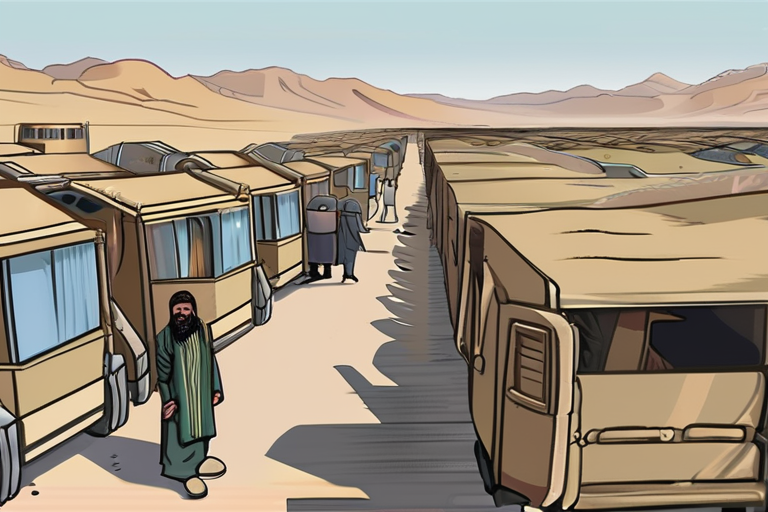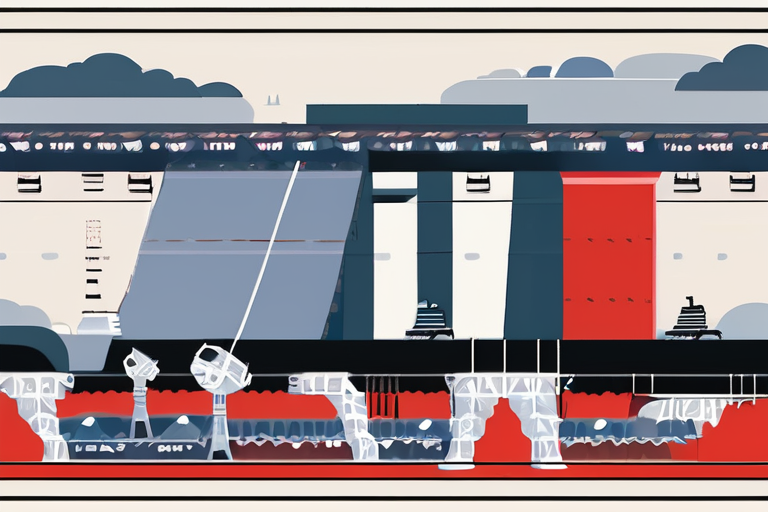'Illegal in own homes': Afghan refugees caught in Pakistan-Taliban tensions
ISLAMABAD, PAKISTAN - In a move that has left millions of Afghan refugees reeling, the Pakistani government has accelerated its campaign to expel them from the country. The decision, which began in late 2023, has seen orders issued to close down refugee camps across Pakistan following recent fighting with Afghanistan's Taliban.
According to Allah Meers, a 45-year-old Afghan refugee who was born in a refugee village in Kohat, northwestern Pakistan, more than 200 members of his extended family made the journey from Afghanistan to Pakistan over four decades ago. "This is our home," Meer said, echoing the sentiments of many Afghan refugees who have called Pakistan their home for generations.
The Pakistani government's decision to expel Afghan refugees has been met with widespread criticism and concern from human rights groups and international organizations. "It's a humanitarian crisis waiting to happen," said Sarah Khan, a spokesperson for the United Nations High Commissioner for Refugees (UNHCR). "We urge the Pakistani government to reconsider its decision and find a more humane solution."
The refugee crisis in Pakistan dates back to 1979 when millions of Afghans fled their country after the then-Soviet Union invaded Afghanistan. Since then, Pakistan has provided shelter to over 3 million Afghan refugees, making it one of the largest host countries for displaced people.
However, tensions between Pakistan and Afghanistan's Taliban have escalated in recent years, with both countries accusing each other of supporting militant groups. The Pakistani government claims that many Afghan refugees are involved in militant activities, which has led to a deterioration in relations between the two countries.
The expulsions have left many Afghan refugees in a state of uncertainty, unsure of their future and where they will go next. "We've been living here for over 40 years," said Meer. "Where can we go? This is our home."
As the situation continues to unfold, human rights groups and international organizations are calling on the Pakistani government to reconsider its decision and find a more humane solution. The UNHCR has urged the government to provide alternative solutions for Afghan refugees, including resettlement in third countries or integration into Pakistani society.
The current status of the expulsions remains unclear, with many Afghan refugees facing an uncertain future. As one refugee put it, "We're caught between two countries that don't want us."
Background:
Over 3 million Afghan refugees have been living in Pakistan for over four decades.
The Pakistani government claims that many Afghan refugees are involved in militant activities.
Tensions between Pakistan and Afghanistan's Taliban have escalated in recent years.
Additional perspectives:
Human rights groups and international organizations have criticized the Pakistani government's decision to expel Afghan refugees.
Many Afghan refugees are unsure of their future and where they will go next.
The UNHCR has urged the Pakistani government to provide alternative solutions for Afghan refugees.
Current status and next developments:
The Pakistani government continues to expel Afghan refugees from the country.
Human rights groups and international organizations continue to call on the government to reconsider its decision and find a more humane solution.
The future of Afghan refugees in Pakistan remains uncertain.
*Reporting by Aljazeera.*








